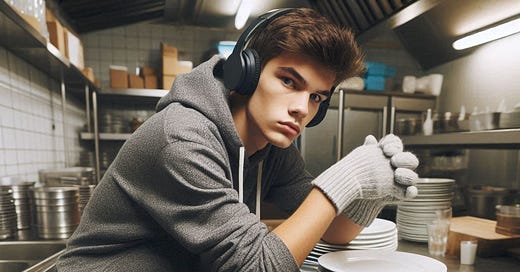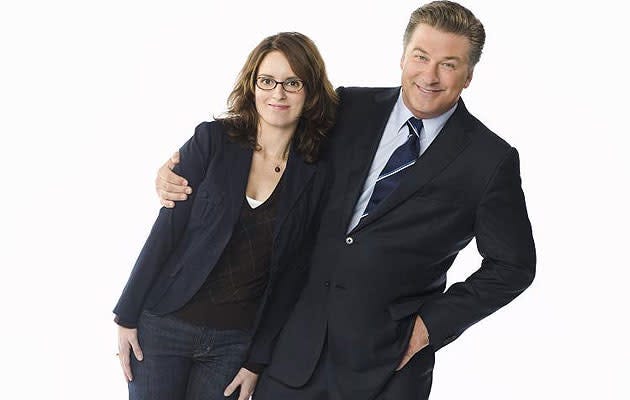No YouTube video for this yet. So you’ll just have to read:
The High Flyer is the third sitcom character type, in my series loosely based on the Enneagram.
I call them the High Flyer because they are all about accomplishments and achievements. They want to come top of the class. They want to win the medal. They want to get full marks in the test. They want to represent the group at the regional conference. They want to climb the ladder.
And they don’t just want to. They need to. They have to. Which makes it very frustrating and often funny when they don’t manage it.
Why are High Flyers motivated in this way? Because they believe that accomplishments and achievements are how we are judged. In fact, to them, that is how we should be judged. And they want to measure up. For the High Flyer, the f-word is ‘failure’.
But being a High Flyer is a state of mind, not necessarily a reality. In fact, it’s rare to find someone who wants to be best, thinks they’re the best, has to be the best and objectively really is the best, although I can think of three.
One is a real human being: British decathlete, Daley Thompson who was probably the greatest all-round athlete on earth for a decade, winning Olympic Golds and setting records in the 1980s. He wanted to be the best, trained hard to be the best, became the best and essentially said, “There you go. I’m the best. Told you.” He was not a gracious winner, which can only really explain why he isn’t a national treasure for the British and has become rather an obscure figure. It’s all rather tragic.
The Smartest Guy in the Room
Here's a funny version of the High Flyer who is the best and knows it: Sheldon in The Big Bang Theory. I’m going to put my hand up here and admit that I only saw Season 1, but it seems pretty clear that he is not just always the smartest guy in the room, he knows it and thinks it’s easier that everyone just admits it. What’s funny about the character is the fact he’s having to learn that he doesn’t need to dominate, be the best and be acknowledged as the smartest. He has to learn humility – which to him seems like lying. Why credit your team, if you’re the one that did all the work and is clearly a genius? That’s a good character and is going to be funny every time.
The Weirdest Odd Couple on TV
Another funny successful High Flyer would be Jack Donaghy (Alec Baldwin) in 30 Rock who has climbed the greasy pole of General Electric in order to enjoy the status and prestige it brings. He is totally amoral and a great foil for Liz Lemon (Tina Fey) who is trying to be the classic urban centre-left virtuous person. Liz is the protagonist in 30 Rock, so that’s probably why it’s okay that Jack is smug and successful.
Yes, he’s smug. Last time, we tried seeing how other characters see this character. Some would say “arrogant”, at least in the case of Daley Thompson or Sheldon. But it’s always worth having that character in mind.
High Flying Failures
But “the High Flyer” does not have to actually be the brightest and the best in your show. They don’t need to be the top of the class. They just really want to be. The High Flyer has an achievement-based mindset. It’s all about status. In the process, they are normally crushed by the pressure they put themselves under when to others they are joke – or they simply aren’t paying attention because success and status don’t really matter. Or they need to be reassured that they are loved unconditionally because that’s how love works. (But they don’t want love! They want respect!)
The lowly High Flyers have been at it all their lives. They were in the Cubs or Scouts or Guides or Brownies and collected all the badges. They were probably head boy or head girls at school – and if not, they ran a strong election campaign (even though the position was not elected…). High Flyers always got good marks for effort, if not for achievement. They want to make dad proud. If there’s any kind of competition in the work place, they want to win – not for the prize but for prestige. And they will want results to be published so everyone can see who won, although they may take down or hide those results if it turns out they lost.
Low Flying High Flyers
This could be Dwight in The Office. I’ve only seen the British version which has Gareth, essentially the same character, but I see from Wikipedia that:
Dwight formally holds the title of "Assistant to the Regional Manager” but constantly refers to himself as "Assistant Regional Manager", attempting to elevate himself to second-in-command to branch manager Michael Scott.
Classic High Flyer! He wants the status of being Assistant Regional Manager. High Flyers crave status, prestige and respect. But actually being Assistant Regional Manager is beyond him.
A less tragic, more likeable High Flyer could be Amy from Brooklyn 99. She’s classic head-girl material who wants to ace every test, come top of every class and win the approval of anyone in authority, particularly Captain Holt. Like the Helper, Amy wants approval, but she thinks she can win it with success and performance, rather than just helping everyone.
Perhaps we could throw Gob Bluth into this category. He wants the prestige and attention of either being a successful magician, or ‘the head of the family’ as the oldest brother, but his chronic laziness and fecklessness mean that he will never get the plaudits he craves. Or Tom Haverford from Parks and Recreation? Does every sitcom need a ‘High Flyer’?
Two more British examples would be Red Dwarf’s Arnold J Rimmer, who comes from a line of admirals, but just doesn’t have the talent to measure up and make it to the top like his ancestors. And then, there’s Alan ‘let me on the telly’ Partridge who is desperate to be seen as a successful media personality, but is 100% cringe.
Back to the Restaurant
So let’s go back to our restaurant sitcom we’ve been creating as a playground for these nine characters. The High Flyer could be the owner, who wants this restaurant to be something that brings them prestige and respect. But here’s an idea. Let’s put the High Flyer at the bottom.
Meet Jake.
Jake is the son of the owner, his mother, Meg. Jake is desperate for her approval and aims to win with achievements. Meg owns the restaurant and believes in tough love. So she’s made her young son start at the bottom, washing dishes and clearing tables. Jake is okay with that. If he stays the course and wins her approval, he will inherit the restaurant and be a success. In fact, he wants to buy his mother out, one day.
But Jake struggles to impress his mum, girls in general, and his colleagues with clean dishes – other than doing it faster than anyone else and, yes, there is a contest - so he's looking for any possible way to bring himself distinction and honour. And if that involves a hotdog eating contest, so be it. He will also leap at the chance to take an order, serve a meal, pour some wine or do anything visible in the restaurant.
Jake will do anything he can to get into an elite institution, like an Ivy League university for the prestige. So he listens to all kinds of lectures and courses while washing up and working. When that doesn’t work, he’ll try Westpoint military academy and go on a devastating unhealthy fitness drive (doing the washing up with weights around his wrist). Or he decides to be the fastest to a million subscribers on YouTube. He is 100% sure he is destined for greatness. He just doesn’t know what his thing is. In his head, Jake is a high flyer; it’s just reality that needs to catch up. The others see him as overly competitive, and desperately seeking approval. But they like him. He’s a good person. He still has his moral code. And maybe that’s his problem. And that’s why his mother, Meg, became so successful – because she is the worst…
Next time, Type 4: The Exception.







